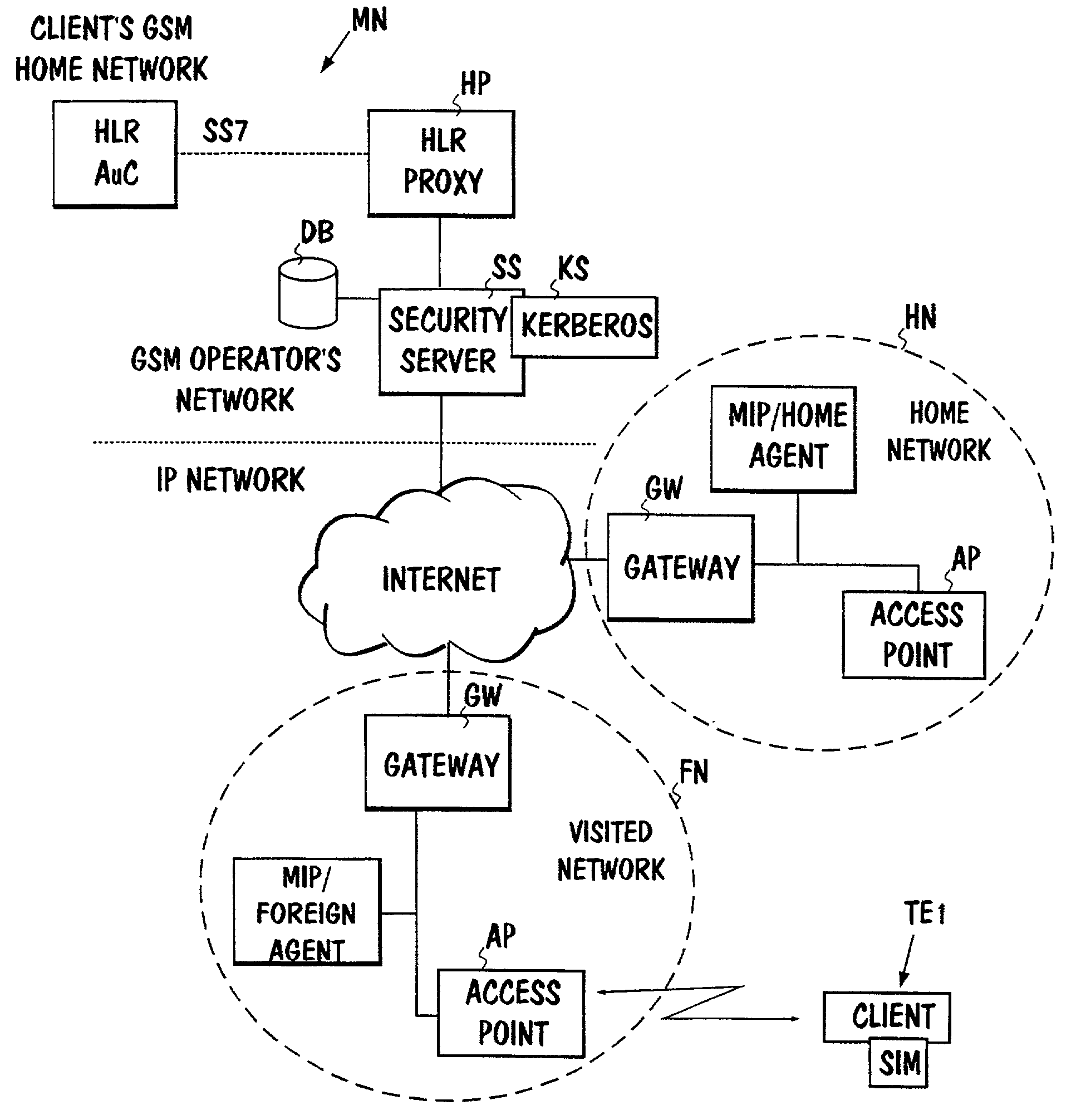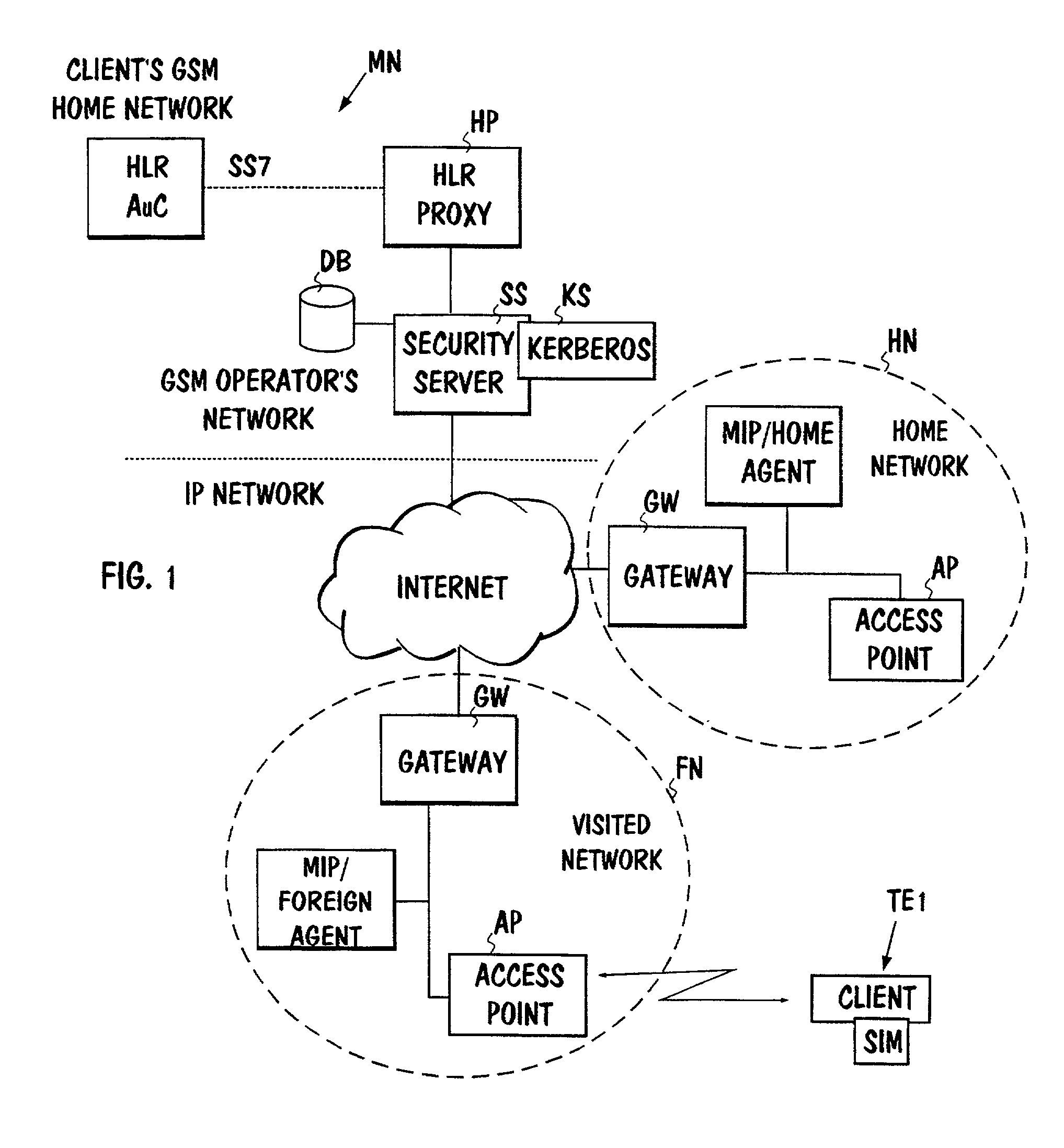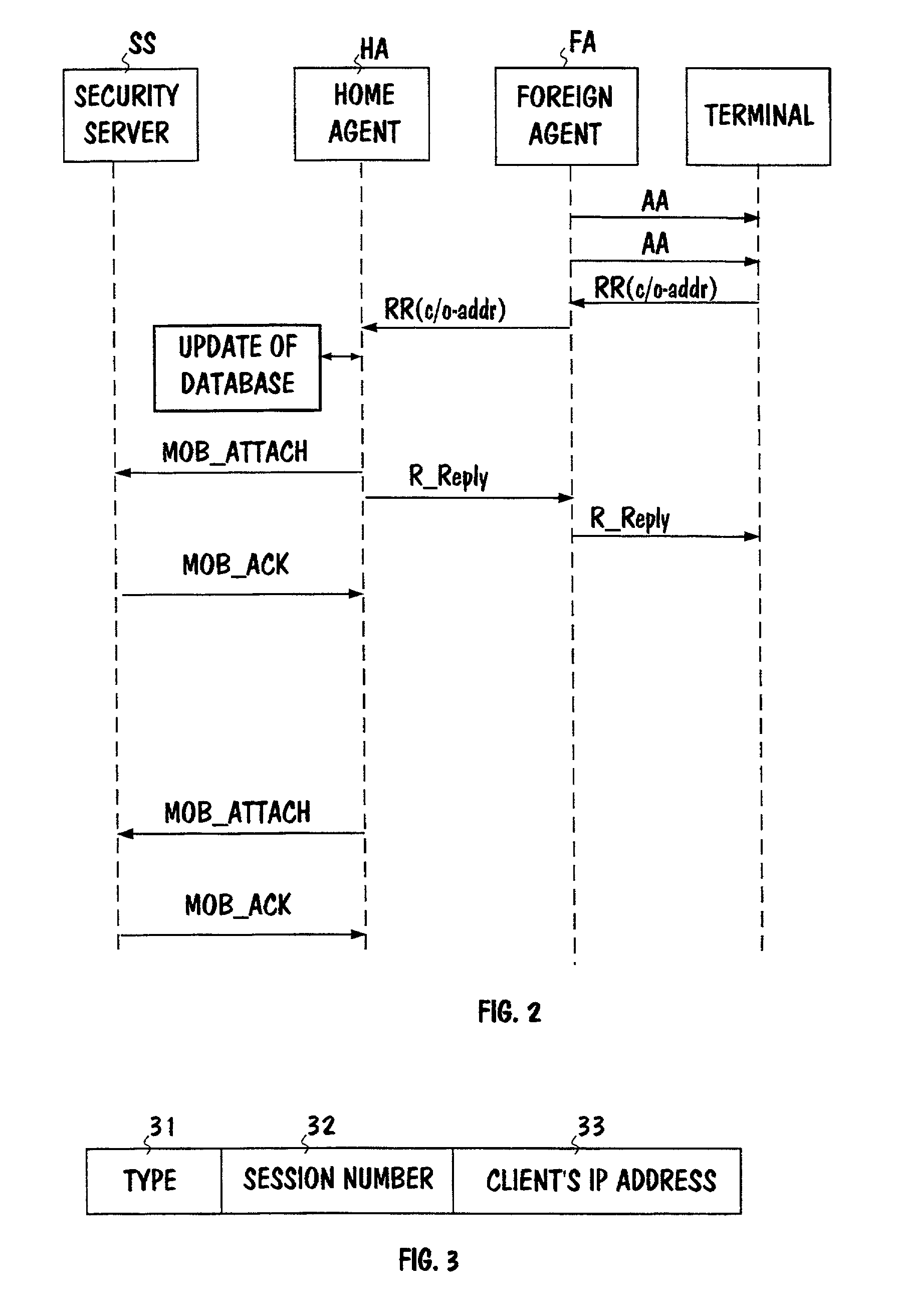System and method for authentication in a mobile communications system
- Summary
- Abstract
- Description
- Claims
- Application Information
AI Technical Summary
Benefits of technology
Problems solved by technology
Method used
Image
Examples
Embodiment Construction
[0025]In the following the invention will be described with reference to a network environment, wherein mobility of the subscribers is supported with the aid of a Mobile IP protocol (MIP hereinafter). The MIP is such a version of the existing IP, which supports mobility of the terminals. (The MIP principle is described e.g. in the RFC 2002, October 1996, or in the article Upkar Varshney, Supporting Mobility with Wireless ATM, Internet Watch, January 1997.)
[0026]The MIP is based on the idea that each mobile host or mobile node has an agent (home agent) allocated for itself, which relays packets to the current location of the mobile node. When the mobile node moves from one sub-network into another, it registers with the agent (foreign agent) serving the concerned sub-network. The last-mentioned performs checks with the mobile node's home agent, registers the mobile node and sends the registration information to it. Packets addressed to the mobile node are sent to the mobile node's or...
PUM
 Login to View More
Login to View More Abstract
Description
Claims
Application Information
 Login to View More
Login to View More - R&D
- Intellectual Property
- Life Sciences
- Materials
- Tech Scout
- Unparalleled Data Quality
- Higher Quality Content
- 60% Fewer Hallucinations
Browse by: Latest US Patents, China's latest patents, Technical Efficacy Thesaurus, Application Domain, Technology Topic, Popular Technical Reports.
© 2025 PatSnap. All rights reserved.Legal|Privacy policy|Modern Slavery Act Transparency Statement|Sitemap|About US| Contact US: help@patsnap.com



